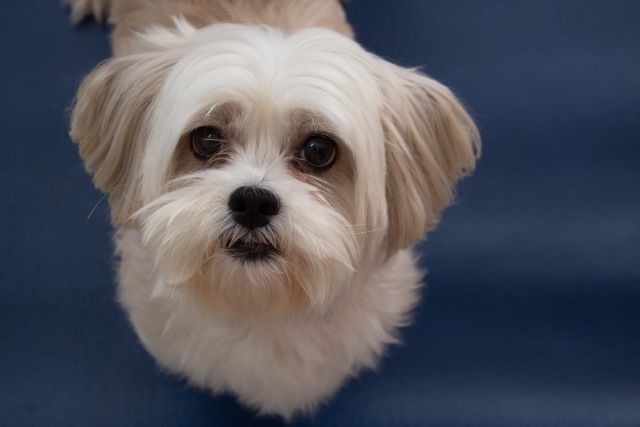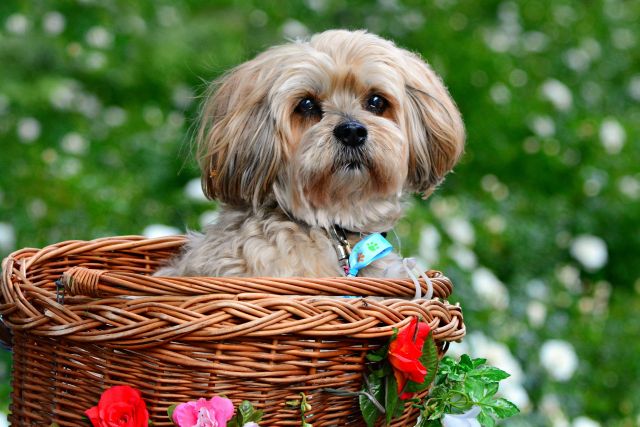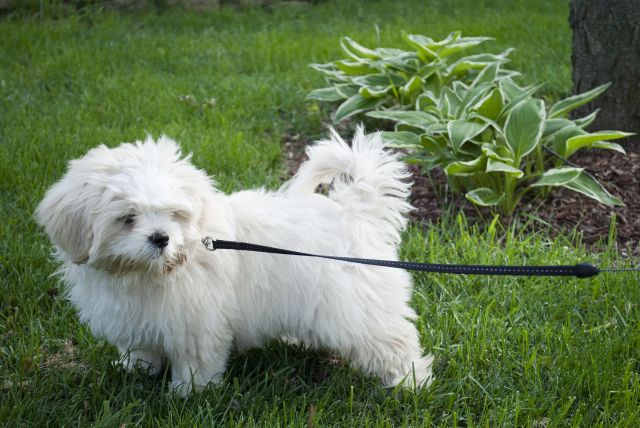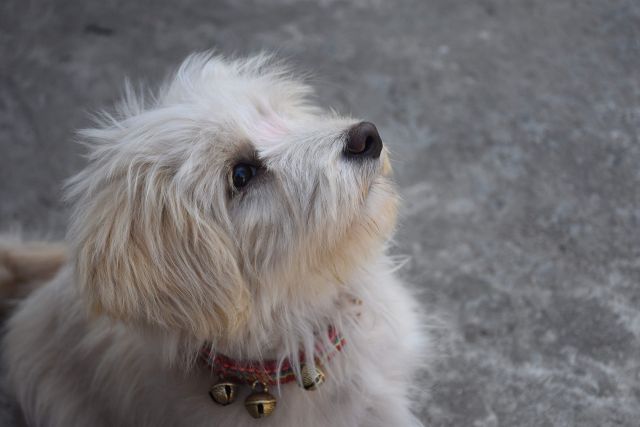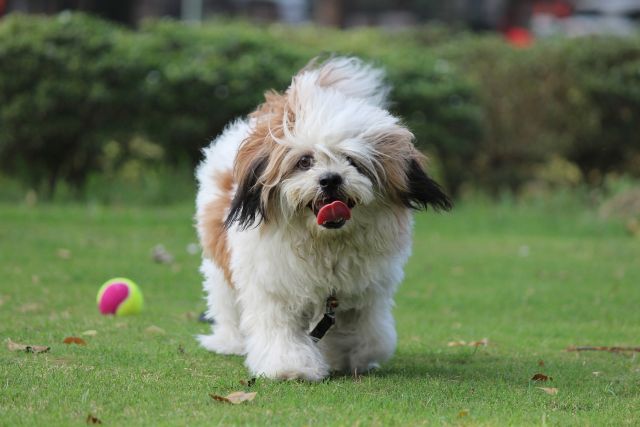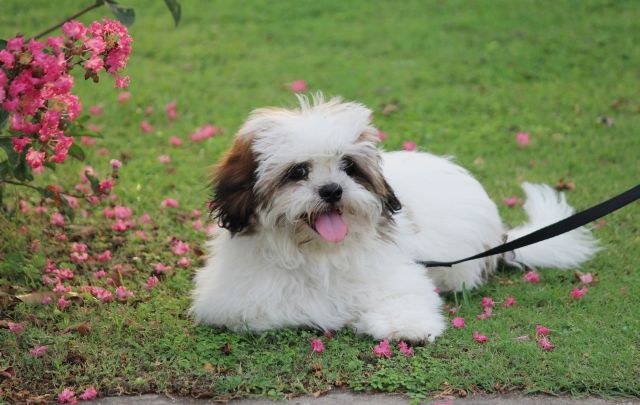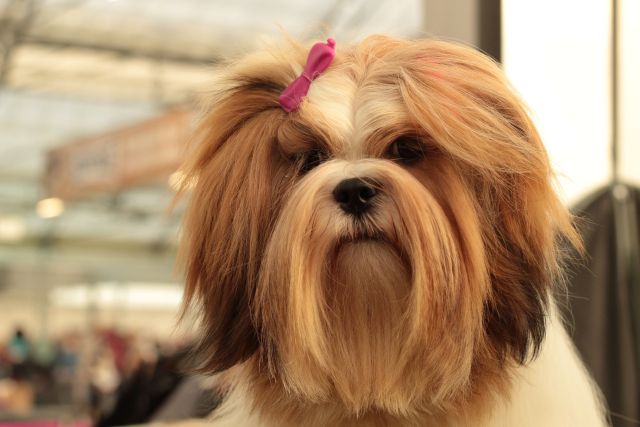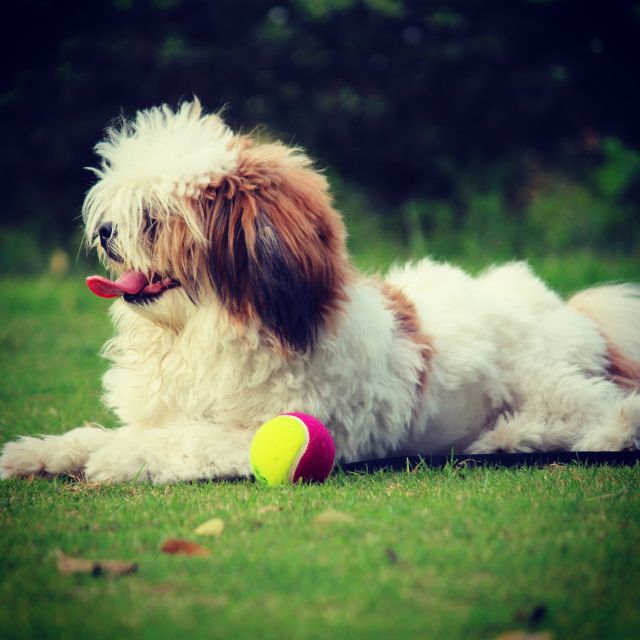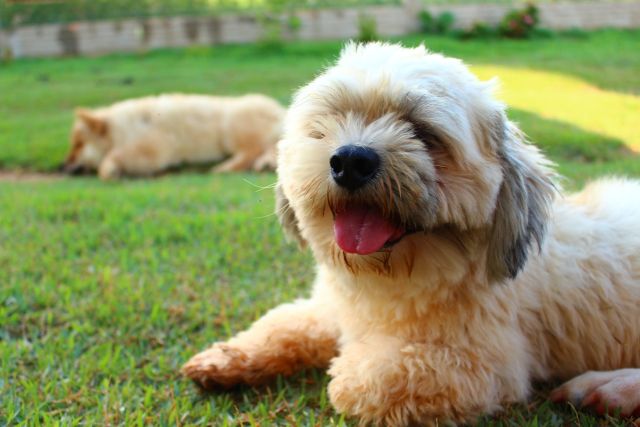The Lhasa Apso is a unique and ancient breed that hails from the mountains of Tibet. Renowned for their regal appearance and distinctive long, flowing coat, Lhasa Apsos exude an air of elegance and charm. Originally bred as sentinel dogs for Tibetan monasteries, they possess a keen sense of hearing and a natural alertness. Lhasa Apsos are known for their loyalty, independence, and strong-willed nature, making them devoted and protective companions. With their rich history and captivating presence, Lhasa Apsos continue to captivate the hearts of dog enthusiasts worldwide.
Origin
The Lhasa Apso is an ancient breed that originated in Tibet, specifically in the region around Lhasa, the capital city. Revered for centuries, this breed holds great significance in Tibetan culture and history. It is believed that the Lhasa Apso was bred as a sacred sentinel dog and companion for Buddhist monks and nobles.
The breed’s origins can be traced back over 2,000 years, making it one of the oldest known dog breeds in the world. Lhasa Apsos were considered sacred and believed to bring good luck and fortune to their owners. They were highly prized and were often given as gifts to important figures and visiting dignitaries.
Due to their important role in the monasteries, Lhasa Apsos were carefully guarded and selectively bred within the Tibetan monastic communities. This selective breeding ensured that the breed retained its unique traits and characteristics.
The Lhasa Apso’s dense double coat, which served as protection from the harsh Tibetan climate, made it well-suited for its original purpose. The long, flowing coat was not only aesthetically pleasing but also served as insulation in the cold mountainous regions. Their keen sense of hearing and alertness made them excellent guard dogs, alerting their owners to any potential intruders or dangers.
It was not until the early 20th century that Lhasa Apsos began to be exported outside of Tibet. They were highly prized and considered rare treasures. The breed was first introduced to the Western world in the 1920s and gained recognition from various kennel clubs.
Today, Lhasa Apsos continue to carry their rich heritage and are cherished as beloved family pets and show dogs around the globe. Their unique origin, cultural significance, and distinctive appearance make them a breed of great historical and cultural interest.
Appearance
The Lhasa Apso is a small to medium-sized breed known for its unique and striking appearance. They have a well-balanced and sturdy build with a long, flowing coat that is one of their most distinctive features. The breed’s coat is dense, double-layered, and comes in a variety of colors, including gold, cream, slate, black, and parti-colors.
The Lhasa Apso’s head is adorned with a profusion of long hair, including a prominent beard and mustache that adds to their regal look. Their eyes are large, dark, and expressive, conveying a sense of wisdom and alertness. They have a well-developed muzzle and a black nose, which contrasts beautifully against their flowing coat.
Lhasa Apsos have a strong and muscular body, with a straight back and a level topline. Their tail is set high and carried over their back, forming a graceful arc. It is also heavily feathered, adding to their overall elegance.
The breed’s overall appearance is one of dignity and nobility. Their abundant, luxurious coat requires regular grooming to keep it looking its best. Many owners opt to keep their Lhasa Apsos in a “show cut” where the coat is kept long and flowing. This requires regular brushing to prevent matting and tangling. Others prefer a shorter, more manageable coat that is easier to maintain.
In addition to their beautiful coat, Lhasa Apsos have a distinctive and confident gait. They move with an effortless and distinctive glide, which further adds to their regal and elegant presence.
Overall, the Lhasa Apso’s appearance is captivating and unique, capturing the attention of onlookers. With their flowing coat, expressive eyes, and dignified stance, they possess an aura of grace and charm that sets them apart from other breeds.
Temperament
The Lhasa Apso is known for its unique temperament, which combines elements of independence, loyalty, and a strong sense of self. This breed is often described as confident, assertive, and even a bit aloof at times. While they can be reserved with strangers, they form deep bonds with their family members and are fiercely protective of their loved ones.
Lhasa Apsos are intelligent and have a strong will of their own, which can make training them a bit challenging. They have a tendency to be stubborn and may require patient and consistent training methods. Positive reinforcement techniques, such as rewards and praise, tend to work best with this breed.
Despite their independent nature, Lhasa Apsos thrive on companionship and enjoy being a part of their family’s activities. They are loyal and devoted to their owners, often forming a strong attachment. This breed does not appreciate being left alone for long periods and may become anxious or develop behavioral issues if they are not given enough attention and mental stimulation.
While they are not typically known for being overly affectionate, Lhasa Apsos can show their love and loyalty in their own unique ways. They may prefer to be near their owners rather than cuddling in their laps. They are also known for their keen senses and excellent alertness, making them good watchdogs who will alert their owners to any potential dangers or intruders.
Socialization is important for Lhasa Apsos from an early age to help them become well-rounded and comfortable in different environments. Exposing them to various people, animals, and situations will help them develop confidence and prevent them from becoming overly wary or anxious.
It is worth noting that while Lhasa Apsos can be a good fit for many households, they may not be the best choice for families with very young children or for those seeking a highly submissive or obedient dog. However, with proper socialization, training, and understanding of their unique temperament, Lhasa Apsos can make wonderful companions for individuals or families who appreciate their independent and loyal nature.
Grooming
The Lhasa Apso has a long, luxurious double coat that requires regular grooming to keep it healthy, tangle-free, and looking its best. The breed’s beautiful coat is one of its most distinctive features but can be high maintenance. Proper grooming is essential to prevent matting, tangling, and skin issues.
Brushing is a crucial aspect of Lhasa Apso grooming. The coat should be brushed at least a few times a week, if not daily, to prevent tangles and mats from forming. Using a slicker brush or a comb with wide-set teeth, gently brush through the hair, paying close attention to areas prone to tangling, such as behind the ears, under the legs, and around the belly. Regular brushing helps to remove loose hair, debris, and prevent the coat from becoming tangled or matted.
Regular bathing is also necessary to keep the Lhasa Apso’s coat clean and healthy. Bathing every three to four weeks is generally recommended, although the frequency can vary depending on the dog’s lifestyle and the condition of their coat. Using a mild dog shampoo, thoroughly lather the coat, taking care to reach the skin, and rinse thoroughly to remove all shampoo residue.
The Lhasa Apso’s coat can be styled in different ways, depending on personal preference and practicality. Some owners choose to maintain a longer, show-style coat, while others opt for a shorter, more manageable length. Professional grooming, including trimming and shaping, is often required to achieve the desired look.
In addition to coat care, attention should be given to other grooming tasks. Regular nail trimming is essential to prevent overgrowth and discomfort. Teeth should be brushed regularly to maintain good oral health, and ears should be checked and cleaned to prevent infections.
Overall, grooming a Lhasa Apso requires dedication, time, and attention to detail. Regular brushing, bathing, and professional grooming sessions are necessary to keep their coat healthy and looking its best. By maintaining a consistent grooming routine, owners can ensure that their Lhasa Apso remains comfortable, free of tangles, and showcases their beautiful coat in all its glory.
Health
The Lhasa Apso is generally a healthy breed with a lifespan of around 12 to 15 years. However, as with any dog breed, they are prone to certain health conditions that potential owners should be aware of.
One common health concern in Lhasa Apsos is eye issues. They may be predisposed to conditions such as progressive retinal atrophy (PRA), cataracts, and dry eye. Regular eye examinations by a veterinarian can help detect these conditions early and allow for appropriate management.
Another health issue that can affect Lhasa Apsos is patellar luxation, a condition where the kneecap dislocates from its normal position. This can cause discomfort and lameness, and in severe cases, surgical intervention may be required.
Dental health is also important for Lhasa Apsos. They may be prone to dental problems such as periodontal disease and tooth loss. Regular dental care, including brushing their teeth and providing dental chews, can help maintain their oral health.
Like many small breeds, Lhasa Apsos can be susceptible to skin allergies and sensitivities. It’s important to keep their coat clean and well-groomed to minimize the risk of skin issues. Regular bathing, brushing, and proper coat maintenance are essential.
Additionally, Lhasa Apsos may be prone to ear infections due to their long, droopy ears. Regular ear cleaning and inspections can help prevent infections and keep their ears healthy.
To ensure the overall health and well-being of a Lhasa Apso, it’s important to provide them with a balanced diet, regular exercise, routine veterinary check-ups, and preventive care. Responsible breeding practices and obtaining a Lhasa Apso from a reputable breeder who conducts health screenings can also help minimize the risk of hereditary health issues.
By being proactive in their care and addressing any health concerns promptly, Lhasa Apsos can enjoy a happy and healthy life as beloved companions.

